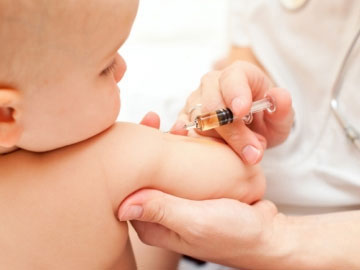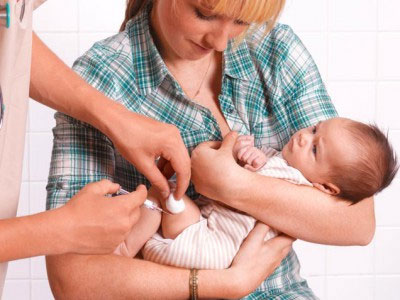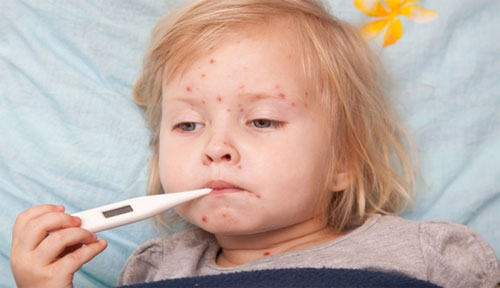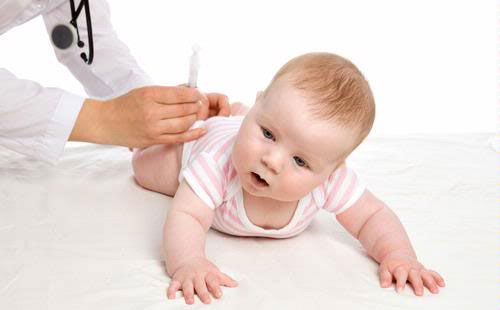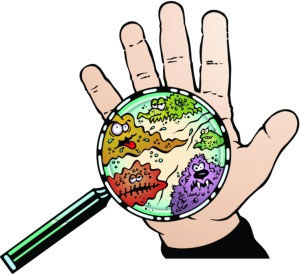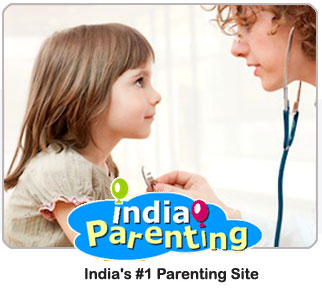 Varicella vaccination provides immunity to children against illnesses like chickenpox. Here is what parents must know about varicella vaccination.
Varicella vaccination provides immunity to children against illnesses like chickenpox. Here is what parents must know about varicella vaccination.Probably one of the most common diseases which 90% of the people in a crowd have had is chickenpox. However, although it is regarded to be a very common and not-so-serious health problem many people in the earlier days have died due to chickenpox as well. For this reason, after a lot of research, the
chickenpox vaccination was invented.
What is the chickenpox vaccine?
The main reason behind
chickenpox is the Varicella-zoster virus. A very common virus, Varicella-zoster, even spread a lot faster than a lot of other viruses. The chickenpox vaccine is called VAR, which is nothing but the ‘weakened’ form of the Varicella-zoster virus. This vaccine acts as a protecting guard for the person who is exposed to the virus anywhere. Hence, the person is very unlikely to attract the virus and therefore, he or she will not have to undergo the painful and ugly disease called chickenpox.
What are the benefits of VAR vaccine?
Chickenpox is no joke! If a child gets it, he or she will have to suffer a lot. With high fever and blisters all over the face and body, chickenpox might leave beyond permanent marks on the patient’s face as well. Also, the kid will have to stay at home for at least 10 days without his friends and school as chickenpox is highly communicable. Hence, vaccination is beneficial.
Chickenpox can also be deadly at times if the disease is not treated well. Before the vaccination was invented, almost around 10,600 hospitalisations and also 100 to 150 deaths occurred in the United States annually.
The vaccine acts as a protecting guard for the children. Although it is not 100% safe as 9 out of every 10 child can get chickenpox, still the symptoms will not be that severe, i.e. no fever, around 50 or less blisters, and less weakness.
The vaccine also protects the children from another similar disease called shingles. This also makes the patient suffer a lot with painful blisters.
Who should get this VAR vaccine?
This vaccination is generally recommended for the children. Even various schools around the world ask for a proof from the child’s parents during admission that he or she has received the VAR vaccination. Two
vaccine shots are given in two distinctive age groups:
- Between 12 to 15 months
- Between 4 to 6 years
- Suppose the kid did not get the vaccine in childhood and hence, he or she can receive it at the age of 13 years. It will again be two shots and the 2nd dose should always be given after 4 weeks of giving the 1st dose.
- The ones who have got only one dose during childhood should get the second dose by this age.
- Women who are planning to get married should also do a blood test in order to know whether she is protected against chicken pox or not.
Who should not get this vaccination?
It is true that not everyone should receive this vaccine. Who are they?
- The ones who have received this vaccination before and also suffered from allergic reactions afterwards.
- Pregnant women.
- Some of the HIV-contaminated persons.
- If a person’s immune system is not good due to any previous illness.
- A person suffering from high fever or cold should wait until he or she gets fully cured before receiving the vaccine.
What are the side effects of VAR vaccination?
Like any other vaccination, even VAR has some mild side effects.
- The vaccinated person can find rashes on the body after one month of getting the vaccine. Very rarely though, the person can even spread chickenpox to others.
- Allergic reactions may occur in front of the vaccine shot site.
So, if you have just delivered a baby and you want your little one to be away from such painful illness, make sure that he or she gets this vaccination after attaining the preferred age.
When is varicella vaccination given to children? What is the importance of giving varicella vaccination to children? What are the side-effects of varicella vaccine? Discuss here.











 Varicella vaccination provides immunity to children against illnesses like chickenpox. Here is what parents must know about varicella vaccination.Probably one of the most common diseases which 90% of the people in a crowd have had is chickenpox. However, although it is regarded to be a very common and not-so-serious health problem many people in the earlier days have died due to chickenpox as well. For this reason, after a lot of research, the
Varicella vaccination provides immunity to children against illnesses like chickenpox. Here is what parents must know about varicella vaccination.Probably one of the most common diseases which 90% of the people in a crowd have had is chickenpox. However, although it is regarded to be a very common and not-so-serious health problem many people in the earlier days have died due to chickenpox as well. For this reason, after a lot of research, the 



